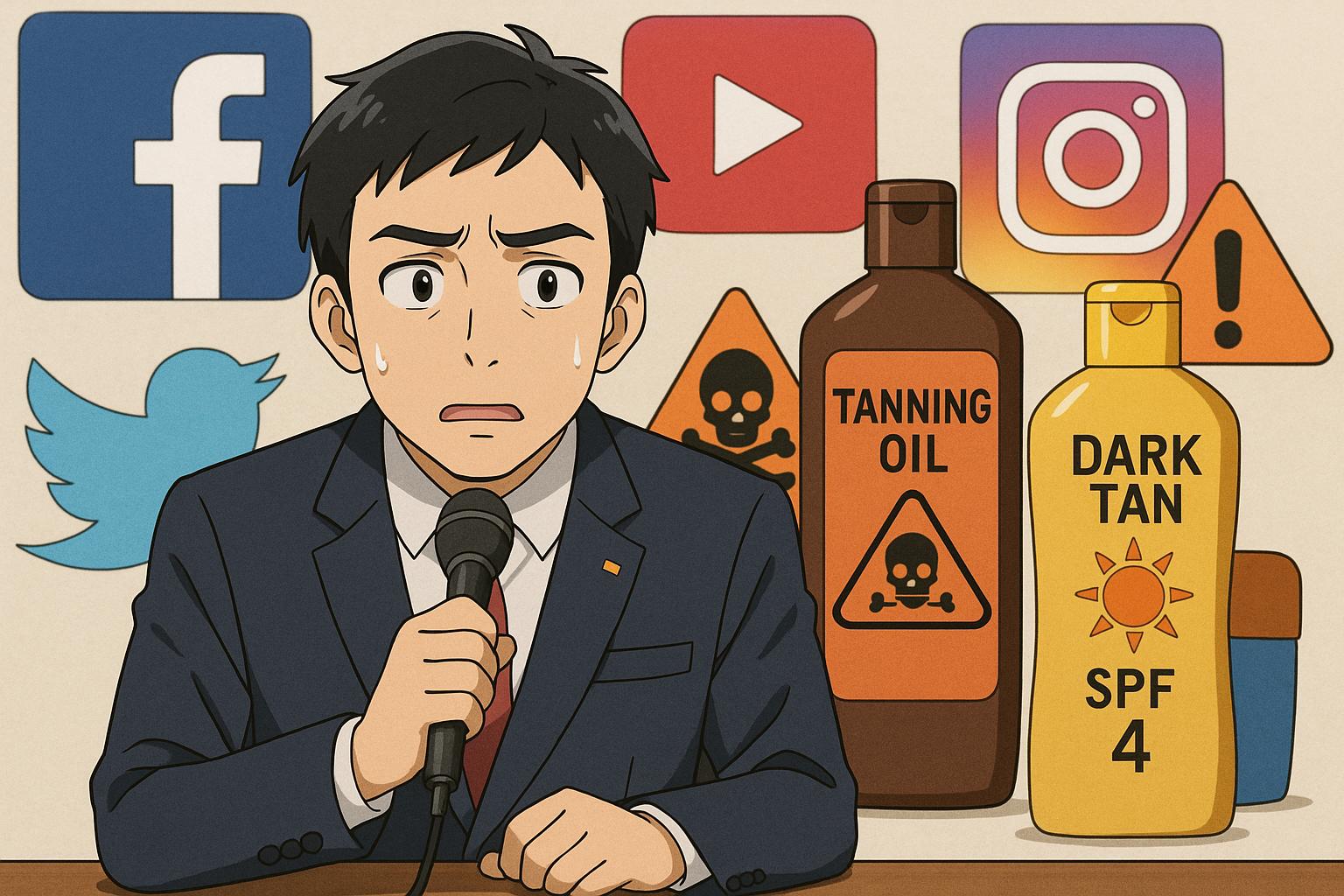Social media influencers promoting dangerous tanning products and spreading misleading anti-suncream messages are now facing critical scrutiny from MPs, sparking a parliamentary inquiry aimed at tackling the wave of misinformation about sun protection. This inquiry specifically targets the influencers on platforms like TikTok and Instagram who engage in irresponsible promotions without adequately warning their followers about the potential health risks associated with their products.
The anti-suncream movement has gained alarming traction online, with viral claims falsely equating sun protection to “rubbing cancer into your skin.” Some influencers have even shared recipes for DIY suncream, a reckless move that experts warn could leave individuals severely exposed to harmful UV rays. This inquiry represents a necessary counteraction to the detrimental trends that have emerged, as MPs assert that enhanced regulatory authority is imperative for the Advertising Standards Authority to dismantle dangerous narratives perpetuated by these influencers.
Carolyn Harris, a Labour MP and chair of the All-Party Parliamentary Group on Beauty and Wellbeing, has articulated the urgent need for public education about the very real dangers of ultraviolet (UV) exposure. Her call to action highlights that without proper education, the nation could well face a health crisis linked directly to irresponsible tanning practices. Meanwhile, the British Beauty Council has underscored the rampant misinformation plaguing social media, pushing for stringent regulations and accountability from influencers. The council plans to present recommendations to the government and industry stakeholders in the near future—a move that aligns with the growing concern over public health being compromised.
This inquiry is far from isolated; it mirrors ongoing discussions in Parliament regarding influencer culture, where reports from the Digital, Culture, Media and Sport Committee have revealed that over 75% of influencers fail to disclose their promotional relationships clearly. This alarming lack of transparency poses significant risks, particularly in light of the psychological impact these promotions have on consumers. Unscrutinized promotion of risky products could endanger the health of impressionable young audiences.
As concerns rise over influencer exploitation and its consequences, previous calls for robust regulations and updated advertising standards grow louder. Discussions dating back to May 2022 urged protective measures not only for child influencers but also for the wider public vulnerable to harmful ideals perpetuated by influencers. The idealised portrayals of body image can have detrimental effects on mental health and self-esteem, especially among youths.
The intersection of influencer culture and health risks has garnered heightened attention following investigative reports into banned tanning products, signalling the urgent necessity for stricter oversight within the influencer marketing industry. Investigations, such as a significant report by BBC News, have revealed shocking shortfalls in consumer protections within this rapidly evolving yet dangerously under-regulated sector.
With MPs and health advocates now demanding accountability in influencer marketing practices, this inquiry is primed to instigate crucial scrutiny of an industry that wields considerable influence over public health opinions. Potential regulatory changes could empower authorities to tackle misleading messaging while promoting safer and more responsible practices in the influencer community, redirecting the focus back to genuine health and wellbeing.
Source: Noah Wire Services
